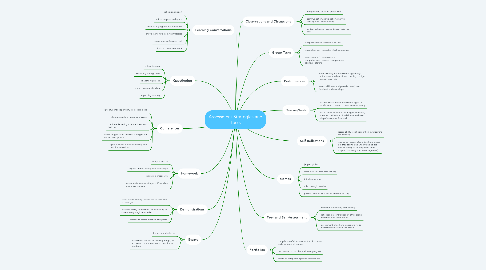Assessment Strategies and Tools
by Stephanie Rose

1. Learning Conversations
1.1. reflection support
1.2. refines purpose and goals
1.3. helps to align goals and outcomes
1.4. shows ineffective learning strategies
1.5. encourages self-assessment
1.6. looks at positive options
2. Questioning
2.1. critical thinking
2.2. expanding on big ideas
2.3. challenging biases
2.4. improving understanding
2.5. explaining thinking
3. Conferences
3.1. give students opportunity to discuss ideas
3.2. share understandings or confusions
3.3. comfortable setting to share ideas and thinking
3.4. assess progress and develop strategies for further development
3.5. opportunity to provide coaching and descriptive feedback
4. Homework
4.1. comprehension
4.2. expand understanding and knowledge
4.3. extension of research
4.4. opportunity to work with parent/guardian and share learning
5. Demonstrations
5.1. show understanding, acquisition of skills and knowledge
5.2. assesses ability to describe understanding to others using tangible materials
5.3. exercise in communication with peers
6. Essays
6.1. in-class on take home
6.2. assessment for and as learning (rough, first and second draft, next steps, descriptive feedback
7. Observations and Discussions
7.1. independent, pair and group work
7.2. communication, participation, sharing thinking and understanding
7.3. on-task behaviour, concentration, listening skills
8. Group Tasks
8.1. independent and team work abilities
8.2. leadership, communication, task completion
8.3. assessment of course content comprehension, research, cooperation, attentive listening
9. Portfolios
9.1. compilation of all assessment work to share understanding of content
9.2. can be used to monitor their own progress
9.3. record of completed specific expectations
10. Performances
10.1. share learning and understanding through performance mediums (dance, acting, design, musical, vocal etc.
10.2. assess skill level and provide descriptive feedback and next steps
11. Peer and Self-Assessment
11.1. reflection on thinking and learning
11.2. reflection on contribution of other group members and team efforts
11.3. assessment of self-awareness, ability to honestly evaluate self and others
12. Self Reflections
12.1. assess ability to reflect on their own learning and thinking
12.2. teacher can assess student self-awareness (are they seeing and understanding their abilities clearly or do they need more support, coaching, and encouragement)
13. Quizzes/Tests
13.1. assess weak areas of understanding for all students and re-teach concepts as necessary
13.2. assessment for and as learning of concepts, theories, definitions of individuals and next steps/descriptive feedback
14. Games
14.1. jeopardy/trivia
14.2. catch phrase (word association)
14.3. 2 truths and a lie
14.4. role playing/charades
14.5. puzzles, riddles, clue-based problem solving


